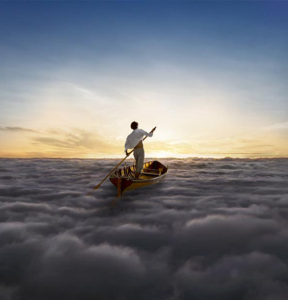
Although the group is missing several of its members, Pink Floyd’s final album brings a fitting end to the band’s long and successful career.
★★★☆☆
Pink Floyd never quite repeated its fantastic work after Roger Waters’ departure in 1979. Lacking his artistic leadership, the band was never able to repeat the flowing masterpieces its previous albums achieved. “The Endless River” is no exception. While it is a peaceful listen with sounds that do distinctly recall Pink Floyd’s old style, it is simply nothing spectacular when compared to the band’s other work.
“The Endless River” is Pink Floyd’s 15th and final album. It’s primarily a work of editing and reconstruction, using hours of recorded tunes taken from the band’s sessions during its previous album “The Division Bell” (1994). This interesting approach means that founding member and talented keyboardist Richard Wright appears posthumously on the album (he passed in 2008).
The work is predominantly instrumental, utilizing the band’s fantastic touch for soothing electronic sound and easy drum tones. One thing that has stayed constant throughout Floyd’s history is its ability to produce calm, beautifully synthesized sound. Its style still creates a special feeling of being transported to another dimension, feeling right at home among the distorted sounds. This element is burdened with carrying the album, which seems to lack in many other areas.
However, this core Floyd sound is more than enough to make this an enjoyable album. In particular, it is definitely one that will allow many long-time fans to reminisce over the band’s discography. Even die-hard fans are probably more likely to go back into their old music libraries and pick up “The Dark Side of the Moon” than hit replay once they’re done with “The Endless River.”
Aside from some opening whispers, akin to those tried by Floyd long ago, there are very few lyrics in this album. The band recognizes its lack of expertise in the vocal department. Waters was the conceptual leader with regard to lyrics for a very long time, and nobody else was qualified enough to fill those shoes. Instead, the album rides its sound all the way through.
One core problem is that the album flows from song to song in such an indistinguishable manner that it’s almost difficult to recognize when the next track has started playing. The album’s flow doesn’t really result in creating a sense of cohesive narrative throughout, because it is not so much a success of album structure as it is a product of each song’s similarity to the others.
In all fairness, it is important to note that a few of the tracks do provide some kind of broken relief from the slow, ambient sounds. The fourth song, “Sum,” brings the tempo up a bit with a quicker beat and a stronger drum. The 11th track, “Allons-Y(1),” takes the album in a somewhat different direction by providing some more complex guitar riffs reminiscent of mainstream old-school rock. However, between these songs, the album quickly recedes back to its previous pattern.
Part of the reason why the album’s flow is so deceiving is because of its reconstructed nature. Reusing old material that was never meant to form a whole in order to create a new piece is difficult, if not impossible.
The album aptly ends on a song called “Louder than Words,” which is ironic because this is the only track with consistent vocals. However, the final song’s title is fitting for a band that sparked a movement of revolutionary sound.




















Juanmi • Nov 29, 2014 at 1:13 pm
Waters left the band in 1983. You dont know ANYTHING about Pink Floyd.